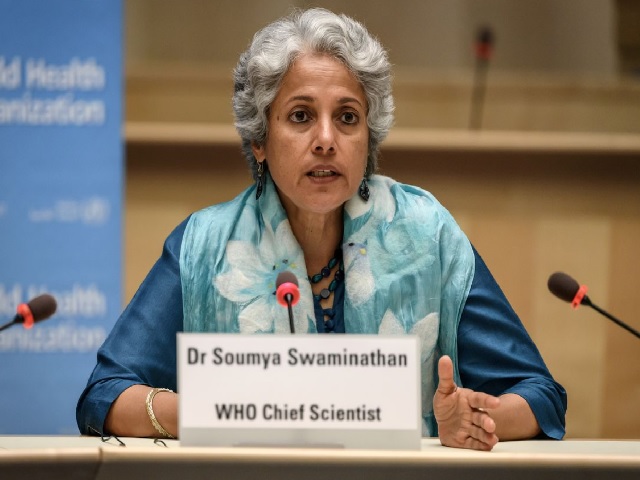The Chief Scientist of the World Health Organisation (WHO) Dr. Soumya Swaminathan has said that COVID-19 in India may be entering some kind of stage of endemicity where there is a low or moderate level of transmission going on.
While talking about the clearance to Indias homegrown COVID-19 vaccine COVAXIN, she said that she is confident that the technical team of WHO will be satisfied to give COVAXIN clearance to be one of its authorized vaccines and that can happen by mid-September.
Is India in an endemic stage of COVID-19?
The Chief Scientist of WHO, Dr. Swaminathan explained that given the size of India and the heterogeneity of the population and immunity status in various parts of the country, it is very very feasible that the situation in India may continue like this with ups and downs in various parts of the country.
She added that India may be entering some kind of stage of endemicity where there is a moderate or low level of transmission going on but there is no exponential growth or peaks that was seen a few months ago.
Dr. Swaminathan further said that she hopes by the end of 2022, we would be in that position that we have achieved vaccine coverage, say 70%, and then the nations can get back to normal.
| What is endemic stage? The endemic stage of any disease is when a population learns to live with a virus. It is very much different from the epidemic stage when the virus overwhelms the population. |
COVID-19 among children:
While talking about the prevalence of COVID-19 among children, Dr. Swaminathan said that parents need not panic.
She explained that if we take from the Sero Survey and what we learnt from other countries, that while it is possible that children can get infected and transmit, they luckily have very mild illness most of the time.
There is a very small percentage that gets sick and gets inflammatory complications and few will die but much less than the adult population.
She added, however, it is good to be prepared. Preparing hospitals for paediatric admissions, paediatric intensive care is going to serve Indias health system in many ways for other illnesses children that children have.
Use of drugs for COVID-19 treatment:
On the use of drugs such as HCQ, Remdesivir or Ivermectin, WHO Chief Scientists said that as of now there is no evidence that Ivermectin or HCQ have any role in reducing the mortality or morbidity in people infected with the COVID-19 virus, nor do these drugs have any role in preventing the infection, therefore, there are no grounds on which the recommendations can be made in the use of either of these drugs for prevention or treatment.
She further explained that solidarity trial had shown that Remdesivir does not reduce the mortality, it may have benefit in the subgroup of patients who were ill enough to need oxygen but not ill enough to be on ventilation, so there might be a marginal benefit but certainly, Remdesivir does not do much.
Is it possible to predict the third wave of COVID?
The one question that has led researchers and scientists to make various predictions is whether there will be the third wave. And if yes, then when?
Talking about the third, WHO Chief Scientist clarified that it is impossible to predict the third wave of COVID-19. It will be impossible to predict where and when the third wave will be upon us or if it will come at all.
However, one can make an educated guess on some of the variables that have an impact on the transmission of the virus.
Booster doses: What WHO Chief Scientist said?
While talking about the booster doses, Dr. Swaminathan said that there are both scientific and moral, and ethical reasons for not rushing into the boosters.
It will also be in the self-interest of the nations globally who have excess doses now to send them out through COVAX to those countries that desperately need them.
Recently, WHO Chief had also condemned the developed nations around the world for approving booster doses for their own people, while a huge section around the world has no excess to even a single dose of COVID-19 vaccine.
The United States, Israel are among the nations that gave approval for the booster dose.read more


